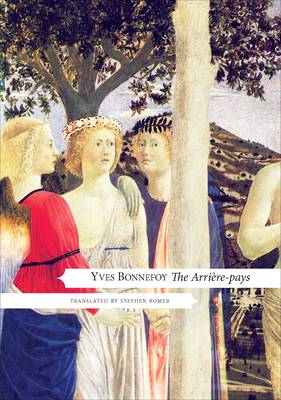
- Afhalen na 1 uur in een winkel met voorraad
- Gratis thuislevering in België vanaf € 30
- Ruim aanbod met 7 miljoen producten
- Afhalen na 1 uur in een winkel met voorraad
- Gratis thuislevering in België vanaf € 30
- Ruim aanbod met 7 miljoen producten
Zoeken
Omschrijving
Since the publication of his first book in 1953, Yves Bonnefoy has become one of the most important French poets of the postwar years. At last, we have the long-awaited English translation of Yves Bonnefoy's celebrated work, L'Arrière-pays, which takes us to the heart of his creative process and to the very core of his poetic spirit. In his poem, "The Convex Mirror," Bonnefoy writes: "Look at them down there, at that crossroads, / They seem to hesitate, then go on." The idea of the crossroads haunts Bonnefoy's work, as he is troubled by the idea that the path not taken may lead to the arrière-pays, a place of greater plenitude, and of more authentic being--an "elsewhere in the absolute." Seized by this fear that what he terms "presence" exists always somewhere else, a little further on, Bonnefoy here sets out on a labyrinthine quest to find traces of this "original place," which he locates not only in objects of knowledge and experience as diverse as the deserts of Asia, a hill fort in India, a church in Armenia, the painting of Piero della Francesca but also, crucially, in the undivided intensity of his experiences as a child. Written with a visionary grace, The Arrière-pays is a spiritual testament to art, philosophy, and poetry. Enriched by a new preface by the poet, this volume also includes three recent essays in which he returns to his original account of an ethical and aesthetic haunting, one that recounts the struggle between our instinct to idealize--what he deems our eternal Platonism--and the equally strong need to combat this and to be reconciled with our nature as finite beings, made of flesh and blood, in the world of the here and now.
Specificaties
Betrokkenen
- Auteur(s):
- Vertaler(s):
- Uitgeverij:
Inhoud
- Aantal bladzijden:
- 219
- Taal:
- Engels
- Reeks:
Eigenschappen
- Productcode (EAN):
- 9780857420268
- Verschijningsdatum:
- 15/08/2012
- Uitvoering:
- Hardcover
- Formaat:
- Genaaid
- Afmetingen:
- 207 mm x 188 mm
- Gewicht:
- 576 g

Alleen bij Standaard Boekhandel
+ 65 punten op je klantenkaart van Standaard Boekhandel
Beoordelingen
We publiceren alleen reviews die voldoen aan de voorwaarden voor reviews. Bekijk onze voorwaarden voor reviews.











